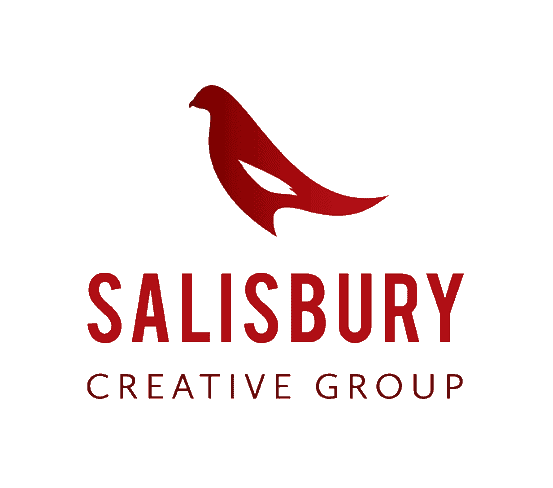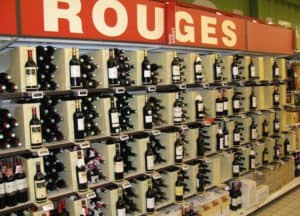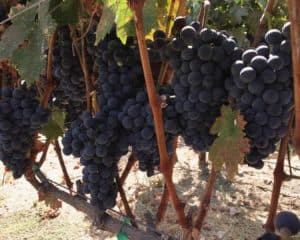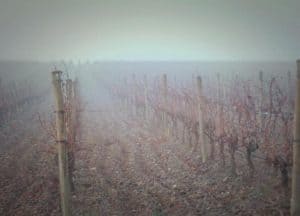
Facebook ads transformed my business (and can transform YOURS, too)
I completely transformed my wine & spirits sales consultancy using Facebook ads. And I am about to share the lessons I learned with YOU.
I use Facebook ads to find, attract, and nurture hundreds of prospects (wineries and distilleries) and have built a half-million dollar per year business as a result.
In addition to using Facebook ads to improve my own business I have also used it to help many different wine and spirits companies improve their businesses.
Facebook ads can be used for both DTC and B2B
Facebook advertising is one of the most effective platforms for improving both DTC and B2B wine sales. But many wineries/distilleries (and even their agencies) do not know how to do it correctly. Part of the reason is it is so darn easy to do it wrong but incredibly difficult to do it right.
The learning curve is incredibly steep. So many things must come together. To learn how to master the platform, you must be willing to let go of and “unlearn” much of what you think you know about it.
Before you settle on a strategy (or choose an agency to help you), you would be wise to seek the advice of someone who has enjoyed PROVEN success with Facebook advertising.
Let’s dive right in, shall we?
Lesson 1: Facebook ads are not effective for selling (at least not directly)
There are over 2.6 billion users worldwide scrolling their Facebook feed daily. While only ten percent of those users can be found in the USA, almost half of all the ad revenue from Facebook is spent by US companies. If you want to be successful with Facebook advertising, it helps a great deal to understand what the users want when they log into the app.
People primarily come to Facebook for two things: to be entertained or to socialize. They do NOT come to the platform to buy. If the call to action button you are using in your ad is “SHOP NOW” or “BUY NOW” you are not only going to waste a lot of money but will potentially squander the good will of your would-be customers.
The goal of advertisers using the Facebook platform should be to grow their email list and then use email marketing to nurture (slowly, patiently, and skillfully) those “leads” until they buy. Failure to understand this process is why so many wineries say, “Facebook advertising doesn’t work.” Oh, it works alright: but you just must learn how to do it correctly.
Lesson 2: Test, test, and test some more
One of the very first things I learned when I began my Facebook advertising journey was no matter how good I thought my ideas were, I would never really know for sure until I TESTED them. There are four different things you can test: image, ad copy, headline, and audience. I have found it is best to test several audiences first (using the same image, ad copy, and headline for all ads in the test). Once you have found the best performing audience, you can then test two to three different images on that “winning” audience. Then I take the best performing image for that winning audience and test two to three different headlines. THEN I am are ready to proceed with the full force of my ad budget.
It takes four to five days for Facebook’s algorithm to “learn” which users are most likely to engage with a new ad. So, using the testing scenario above, it could take two to three weeks before your campaign comes out of the testing phase.
Your patience will be rewarded many times over by getting better RESULTS.
Lesson 3: Your Facebook ads should not LOOK like ads
This is a common mistake that is easy to make. Facebook has made it effortless for literally anyone to jump into the advertising game. But nothing will hasten the scrolling thumbs of users more than something that looks like an ad. If you want people to engage with your content, you would be wise to avoid any whiff of self-promotion. For example, a stunning beauty shot of a vineyard is far more effective at stopping the scroll than a bottle shot of one of your wines (no matter how you dress up the background).
The same goes for your headline and ad copy. Stay far away from any language that highlights the attributes of your product. Instead, focus on your STORY. Upload an old photograph of your owner/founders and use the ad copy space to share how and why they came to be in the wine business.
It might seem counter-intuitive to spend money on advertising without directly promoting your products. But, the power of social media can only fully be unlocked by understanding what users want to see on their feed (and what they DON’T want). The good news is Facebook has provided a handy “report card” for your ads via their Ad Relevance Diagnostics. If you are not consistently getting Average and Above Average rankings, there is your first clue you are missing the mark with your ads.
PRO TIP: If you currently employ an advertising agency to help with your Facebook ads, insist they provide you with the Ad Relevance Diagnostics as part of their “results” dashboard for each ad. It is one of the most reliable metrics of what kind of job they are doing for you. High relevance is directly correlated with high performance (ROI of your ad spend).
Lesson 4: Boosting posts is not “real” Facebook advertising
It might feel like it is, but it is not. In most instances, boosting posts is a giant waste of money. The reason is it severely limits your audience targeting. It is like stepping over a dollar to pick up a dime. It is like filling your belly with free bread in a restaurant while sitting 5 feet away from a smorgasbord. Boosting posts is the lazy person’s idea of Facebook advertising.
What to do instead? Create a Facebook Business Manager. Then create an Ad Account. Then assign your new Ad Account and your Facebook Page to your new Business Manager. Learn how to create and use the Facebook Pixel. Learn how to use the Audience Insights tool. Learn how to create Custom Audiences and Lookalike Audiences. Learn about the different campaign types and how and when to use them. Learn the difference between “warm” audiences and “cold” audiences and how and when to use them. Learn how to use the Ads Manager dashboard and how to interpret all the metrics and insights provided by Facebook (especially the Ad Relevance Diagnostics).
After that, learn how to write effective ad copy. Especially LONG ad copy.
Whew! No wonder so many people default to the idiot-proof boosting of posts. There is so much to LEARN! You bet your a__ there is. Look. There are over ten thousand wineries in the US and at least another fifty thousand wine brands from outside the US vying for the same consumers you are. If you DON’T invest the time to learn how to effectively use Facebook (or hire someone who knows what they are doing), you will achieve very poor results. The wine business has become a deadly serious business. Take some of the money you have been wasting on other dumb things and reinvest it in “real” Facebook advertising.
Lesson 5: Know your audience (and what they want)
The most effective use of advertising is to either solve a problem for someone or to satisfy some need or make someone’s life easier or more enjoyable. For most consumers, wine is a terribly complex product with an overwhelming array of options. Before you can sell someone your wine, you must first earn their trust. And the best way to earn someone’s trust is to build a relationship with them. The best way to build a relationship is to provide something of value. Here’s where Facebook advertising (done correctly) really shines.
For example, maybe you produce an exceptional Pinot Noir. Instead of spewing all manner of “facts” about your Pinot Noir in your ad, why not offer consumers a “free guide to understanding Pinot Noir.” A downloadable PDF that provides useful information about the various regions where great Pinot Noir is produced (i.e. Carneros, Sonoma Coast, Russian River, Willamette Valley, Burgundy, Central Otago, etc) and how they differ. To download the free PDF, they must “opt in” to your email list (via a FB Lead Ad or a landing page). If you continue to consistently provide value over time via your broadcast emails, you will slowly build a relationship with them. A sale should be merely a by-product of a much larger relationship. Facebook advertising is a horrible vehicle for selling wine, but it is an extremely powerful tool for building your email list. Use that email list to sell.
Offering various “lead magnets” like this is a powerful way for you to learn about your customers and what they want. The use of “tags” to segment your email list will enable you to put the right content in front of the right customers.
Lesson 6: It is NOT about you or your products
We are talking about a “mindset” here. Using Facebook advertising to promote your products (under the guise of “brand awareness”) is a losing, money-wasting strategy. This is why, for example, newsletters are (generally) useless. The focus of the typical winery/distillery newsletter is on you and your products. This “inward” focus serves only to lump you in with the tens of thousands of other ham-handed advertisers trying to sell the same type of product.
If you want to help consumers develop an appreciation for your wines/spirits, simply “telling” them about the products’ attributes is a highly ineffective way to do it. Oh, if it were only as easy as swipe right or swipe left. Are they just supposed to take your word for it based on a picture and a few tasting notes? And don’t even get me started about awards and medals and scores. Want to get better results from you Facebook ads? Get the focus off yourself and your products and put it where it belongs: on your customers (see #5 above). Facebook adverting, executed properly, is merely the entry point for building a long-term relationship with wine consumers.
Lesson 7: Results (sales) is the best measurement of success
Likes are nice. Shares are even better. Clicks are encouraging. Growing your fan base is exciting. But NOTHING is better than actual sales. Most Facebook advertising agencies love to proffer reports and dashboards that measure “engagement” as if those metrics alone justified the expense of Facebook advertising (or the agency’s fees). I am not saying there is no value in engagement. There absolutely is. What I am saying is engagement pales in value compared to actual RESULTS. What I want to know is for every dollar I spend on Facebook ads, how much new REVENUE did I gain? I also want to closely track what it costs me to acquire a new customer (defined as someone who purchased something).
Go ahead and measure impressions and reach and click-through rates. But do not STOP THERE! Hold your advertising budget (and agency) accountable for RESULTS. This CAN be measured. If you are not sure how to do it I am happy to show you how (for free).
Time to put this learning to work for YOU
Are you ready to take you take your Facebook advertising to the next level? Start by looking at each of the seven lessons above and asses which ones you are already doing well and which ones you need to improve upon.
This industry is too competitive not to get this right.
Tear it down to build it up
You do not have to be a fan of professional golf to understand this analogy. One of the things that separates great golfers from the average ones is the commitment to continually disassembling, reconstructing, and improving their golf swing.
When was the last time you took a step back and thoroughly evaluated how, why, and what you do with your Facebook advertising budget? These seven lessons above area great place to start. You may also want to download my Facebook Advertising Success Checklist for Wineries & Distilleries.
Which of the seven lessons will you tackle first? I would love to hear your comments! And please share this post with the people in your organization (or ad agency) who need to see it.




